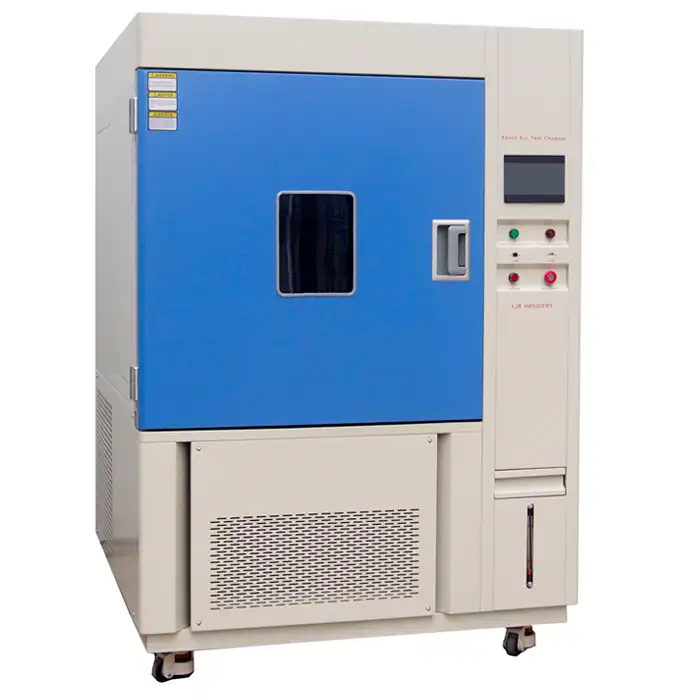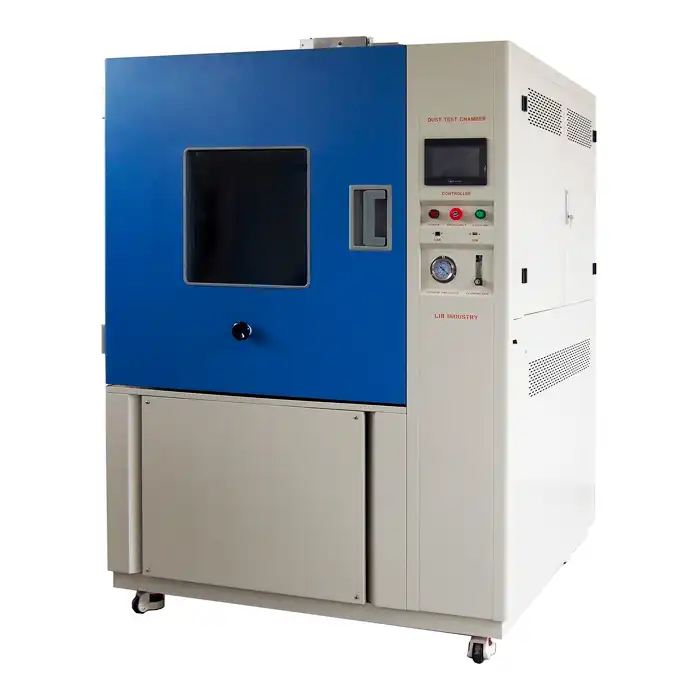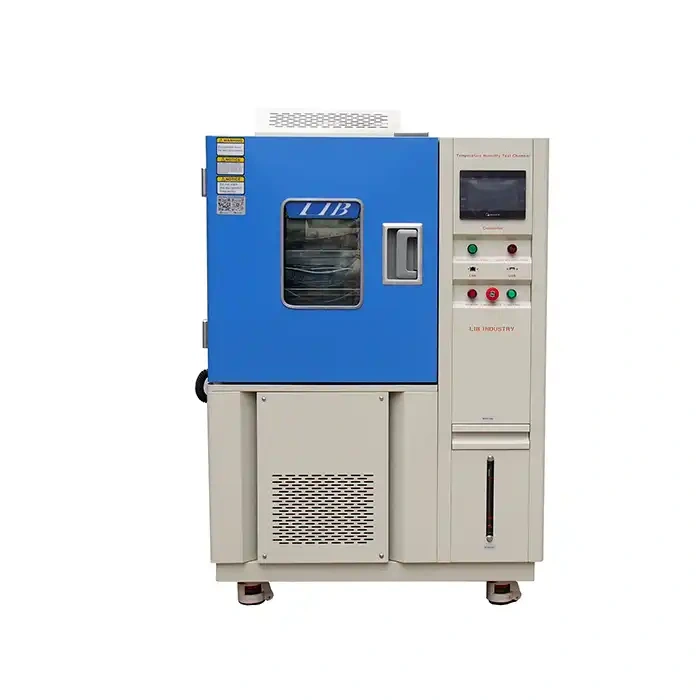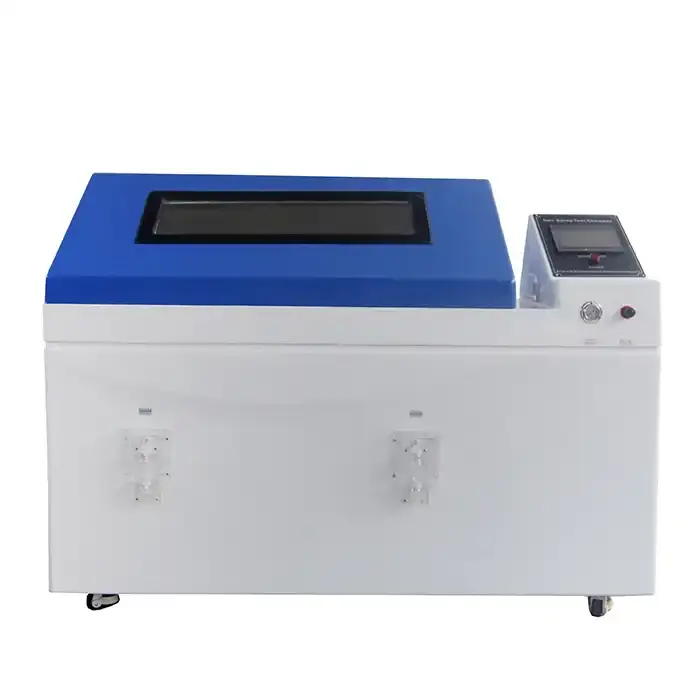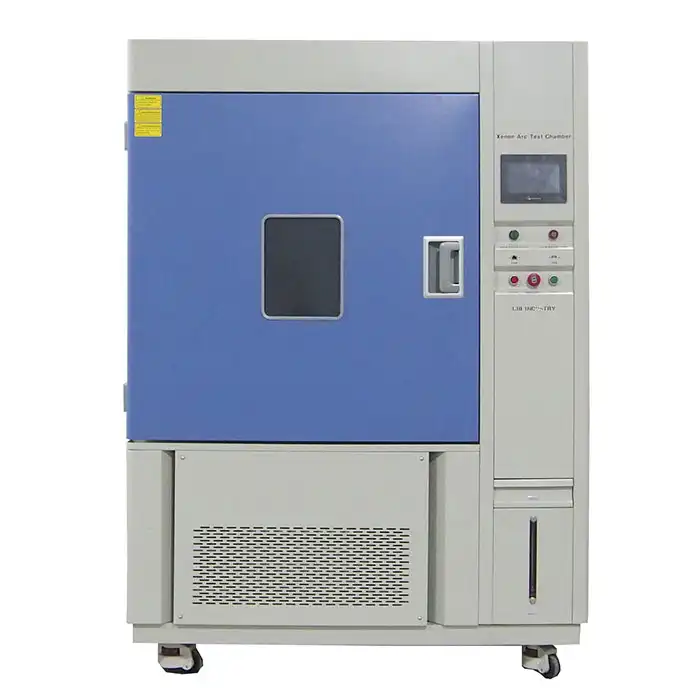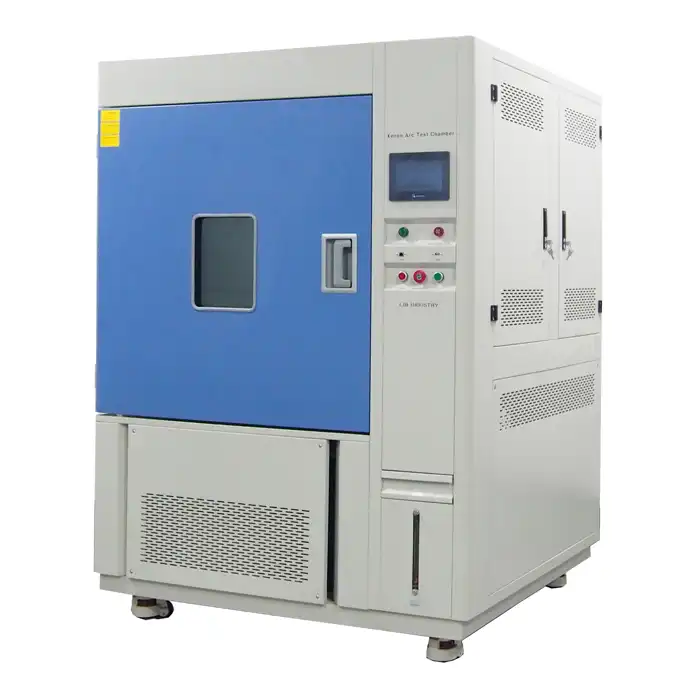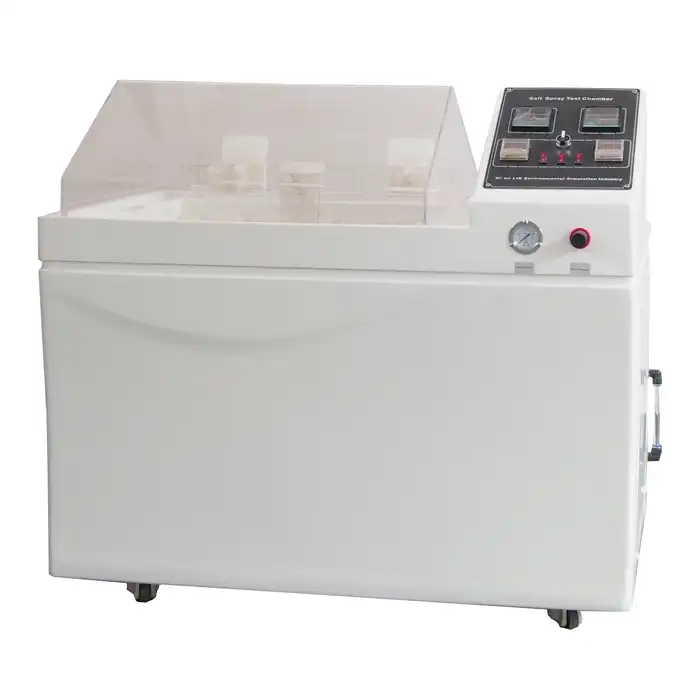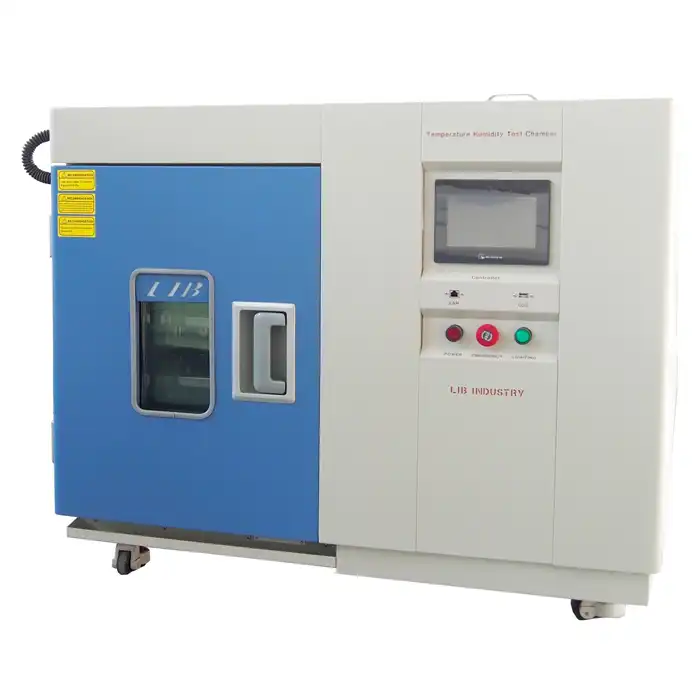What is the IPX9K test standard?
Introduction
The IPX9K test standard is a rigorous testing procedure designed to evaluate the water resistance of products subjected to high-pressure and high-temperature water jets. This standard is part of the broader Ingress Protection (IP) code, which classifies and rates the degree of protection provided by mechanical casings and electrical enclosures against intrusion, dust, accidental contact, and water. The IPX9K rating is one of the highest levels of water resistance, ensuring that products can withstand extremely harsh conditions. This blog will delve into the details of the IPX9K test standard, the ipx9k test equipment used for testing, and its applications across various industries.
How Does IPX9K Testing Work?
What Equipment is Used for IPX9K Testing?
The IPX9K testing procedure requires specialized equipment designed to simulate high-pressure and high-temperature water jets. This equipment includes:
1. Test Chamber: A controlled environment where the testing takes place. The chamber is equipped with nozzles that spray water at specific angles and pressures.
2. Water Nozzles: These are positioned to ensure complete coverage of the product being tested. They are calibrated to spray water at pressures up to 100 bar (1450 psi) and temperatures around 80°C (176°F).
3. Rotating Table: Many test chambers include a rotating table that ensures the product is exposed to water jets from all angles. The table typically rotates at a speed of 5 ±1 rpm.
4. Control System: This system allows the operator to set and monitor the parameters of the test, including water pressure, temperature, spray duration, and nozzle angles.
Testing Procedure
The IPX9K testing procedure is meticulously designed to replicate the most challenging conditions a product might encounter. The process involves the following steps:
1. Preparation: The product is securely mounted on the rotating table inside the test chamber. Any protective covers or seals are documented.
2. Setting Parameters: The control system is configured to set the water pressure, temperature, and spray duration according to the IPX9K standard.
3. Spraying Water: Water is sprayed from four angles: 0°, 30°, 60°, and 90°. Each angle receives water for a specified duration, ensuring complete coverage. The product is exposed to water jets at a pressure of up to 100 bar and a temperature of approximately 80°C.
4. Rotation: The table rotates to expose the product to the water jets from different directions, simulating real-world conditions where water could come from any angle.
5. Post-Test Evaluation: After the test, the product is inspected for any signs of water ingress. This involves visual inspection, functional testing, and sometimes disassembly to check for internal moisture.
Importance of IPX9K Testing
IPX9K testing is crucial for products that need to operate reliably in extremely wet and harsh conditions. It ensures that these products can withstand high-pressure and high-temperature water jets without compromising their functionality or structural integrity. This level of testing is essential for industries where equipment is exposed to severe environments, such as automotive, industrial, and outdoor applications.Ipx9k test equipment manufacturers can provide relevant test equipment.
Why is IPX9K Testing Essential for Automotive Components?
How Do Automotive Manufacturers Use IPX9K Testing?
Automotive manufacturers utilize IPX9K testing to ensure that vehicle components can withstand the rigorous conditions they are likely to encounter. This includes exposure to high-pressure water jets during vehicle cleaning processes, heavy rain, and even driving through deep water.
Key Components Tested
1. Electronic Control Units (ECUs): ECUs are critical for vehicle functionality, controlling everything from engine performance to safety systems. IPX9K testing ensures that these sensitive components are protected from water ingress, which could otherwise cause malfunctions or failures.
2. Sensors and Actuators: Modern vehicles rely on numerous sensors and actuators for optimal performance. These components must be water-resistant to function reliably under harsh conditions.
3. Lighting Systems: Headlights, tail lights, and other lighting systems must be able to withstand water exposure without compromising visibility or safety. IPX9K testing ensures that these systems remain operational in all weather conditions.
4. Connectors and Cabling: Electrical connectors and cabling are vital for vehicle operations. IPX9K testing ensures that these components can resist water penetration, preventing short circuits and electrical failures.
Benefits for Automotive Industry
1. Enhanced Safety: Ensuring that critical components are water-resistant enhances the overall safety of the vehicle. Malfunctions due to water ingress can lead to accidents or breakdowns, which are mitigated by thorough IPX9K testing.
2. Improved Durability: Components that pass IPX9K testing are likely to have a longer lifespan, reducing the need for frequent replacements and maintenance. This improves the vehicle's reliability and reduces ownership costs.
3. Regulatory Compliance: Many regions have strict regulations regarding the water resistance of automotive components. Ipx9k test equipment suppliers helps manufacturers comply with these regulations, facilitating market access and avoiding potential legal issues.
4. Customer Satisfaction: Vehicles that perform reliably in all conditions, including extreme weather, lead to higher customer satisfaction. This reliability builds brand loyalty and can lead to increased sales and market share.
Case Studies
1. Electric Vehicles (EVs): The rise of EVs has brought new challenges in water resistance. IPX9K testing is critical for ensuring that battery packs and electrical systems remain safe and operational under wet conditions.
2. Off-Road Vehicles: Vehicles designed for off-road use are exposed to harsher conditions than typical road vehicles. IPX9K testing ensures that these vehicles can handle water exposure without compromising performance or safety.
What Industries Benefit from IPX9K Testing Beyond Automotive?
Which Other Industries Rely on IPX9K Testing?
While the automotive industry is a major beneficiary of IPX9K testing, several other industries also rely on this rigorous standard to ensure the reliability and durability of their products.
Key Industries and Applications
1. Industrial Equipment: Heavy machinery and equipment used in industries such as mining, construction, and agriculture often operate in harsh environments where water exposure is common. IPX9K testing ensures that these machines can withstand high-pressure water jets, enhancing their durability and reliability.
2. Consumer Electronics: Products such as outdoor cameras, rugged smartphones, and wearable devices benefit from IPX9K testing. This ensures they can operate reliably in wet conditions, whether it be rain, splashes, or even immersion.
3. Marine Applications: Equipment used in marine environments, including navigation systems, communication devices, and control panels, must be water-resistant to function correctly. IPX9K testing guarantees that these products can withstand the high-pressure water jets they might encounter.
4. Military and Defense: Military equipment often needs to perform in the most challenging environments. Equipment of IPX9K testing produced by ipx9k test equipment factory ensures that critical components, such as communication systems and navigation devices, remain operational despite exposure to high-pressure water jets.
5. Public Infrastructure: Public installations, such as outdoor lighting, traffic signals, and surveillance cameras, require robust water resistance to maintain functionality under adverse weather conditions. IPX9K testing helps ensure these installations remain reliable.
Advantages for Non-Automotive Industries
1. Increased Reliability: Products that pass IPX9K testing are more reliable, reducing the likelihood of malfunctions due to water ingress. This is crucial for maintaining operational efficiency and safety in various applications.
2. Extended Product Lifespan: Water-resistant products tend to have longer lifespans, reducing the need for frequent replacements and maintenance. This leads to cost savings and improved customer satisfaction.
3. Compliance with Standards: Many industries have stringent standards for water resistance. IPX9K testing ensures compliance with these standards, facilitating market entry and regulatory approval.
4. Enhanced Performance: Products that can withstand high-pressure water jets without performance degradation offer superior value to users, enhancing their overall experience and satisfaction.
Real-world Examples
1. Construction Equipment: Heavy-duty construction equipment, such as excavators and loaders, are often exposed to wet and muddy conditions. IPX9K testing ensures these machines can operate reliably without water ingress affecting their electronic and hydraulic systems.
2. Agricultural Machinery: Tractors and harvesters frequently work in wet conditions. IPX9K testing ensures that these machines' critical components remain operational despite exposure to high-pressure water jets.
3. Outdoor Electronics: Devices such as security cameras and outdoor lighting systems are exposed to rain and water sprays. IPX9K testing guarantees that these devices can function reliably under such conditions, providing consistent performance and safety.
Emerging Trends and Future Developments
The demand for water-resistant products continues to grow across various industries. As technology advances, IPX9K testing is becoming increasingly important to ensure the reliability and durability of new and innovative products. Future developments may include enhanced testing equipment, more stringent standards, and broader applications across emerging industries such as renewable energy and smart infrastructure.
Conclusion
The IPX9K test standard is a critical measure for ensuring the water resistance of products subjected to high-pressure and high-temperature water jets. This rigorous testing procedure is essential for various industries, including automotive, industrial, consumer electronics, marine, military, and public infrastructure. By understanding the importance of IPX9K testing, the ipx9k test equipment used, and the benefits across different sectors, manufacturers can enhance the reliability, durability, and performance of their products. This leads to increased customer satisfaction, compliance with regulations, and a competitive edge in the market.
References
1. "Ingress Protection (IP) Code Explained." National Technical Systems. Available at: NTS IP Code
2. "Understanding IPX9K: High-Pressure, High-Temperature Spray Down." Intertek. Available at: Intertek IPX9K
3. "IP Code Ratings: What They Mean and How to Use Them." Element Materials Technology. Available at: Element IP Code
4. "Automotive Ingress Protection Testing." TÜV SÜD. Available at: TÜV SÜD IP Testing
5. "Waterproof Ratings Explained: IPX Ratings." Headphones Addict. Available at: Headphones Addict IPX Ratings
6. "Ingress Protection Testing for Military and Aerospace." Environ Laboratories. Available at: Environ IP Testing
7. "Industrial Equipment and Machinery Ingress Protection Testing." SGS. Available at: SGS IP Testing



